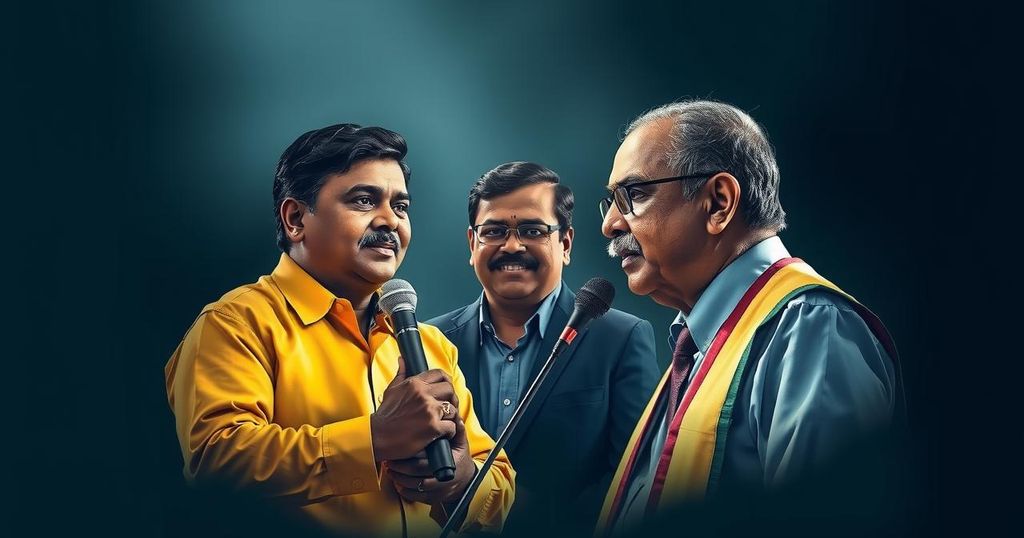Sri Lanka’s new president, from a Marxist-affiliated party, ascends to power amidst economic recovery after the ousting of Gotabaya Rajapaksa. The country has seen improved inflation rates and secured an IMF bailout following two years of severe economic challenges. There is cautious optimism regarding ongoing debt restructuring and future governance under the new administration.
A significant political shift has occurred in Sri Lanka as an outsider takes the presidency amid ongoing economic recovery efforts. Following a period marked by severe austerity and public outrage against the prior administration, which was disparaged for its connection to China, the newly elected leader now heads a party with Marxist affiliations. Over the past two years, Sri Lanka endured extreme challenges including a national default on debts, rampant inflation, and shortages of essential supplies. Fortunately, recent measures have led to a reduction in inflation rates, and the government has successfully negotiated financial assistance with the International Monetary Fund, alongside reaching new agreements with creditors for debt restructuring.
This recent political development is notable given the drastic changes in governance following the downfall of Gotabaya Rajapaksa, whose presidency ended abruptly during widespread protests. With past missteps acknowledged, including excessive borrowing and ill-advised policies, the new administration is prioritizing economic stabilization and recovery. This landscape presents a complex interplay between historical ties to past governance, current economic strategy, and foreign relations—particularly with nations like China. As Sri Lanka navigates its economic landscape, it emerges as a critical case study for other nations grappling with similar crises.
Sri Lanka has faced a profound economic crisis exacerbated by the COVID-19 pandemic, excessive borrowing, and poor policy decisions, culminating in a debt default two years ago. The resulting socio-economic upheaval led to soaring inflation, a depreciation of the national currency, and shortages of vital commodities such as fuel. The political ramifications of these economic challenges were profound, resulting in the ousting of the previous president, who was criticized for his close ties to China. In contrast, the incoming administration is characterized by its leftist ideology and has swiftly initiated measures to improve the country’s financial outlook, negotiating loans and restructuring debts with international entities and creditors.
The election of an outsider as president reflects the dynamic political landscape in Sri Lanka, shaped by recent economic struggles and public discontent. With the new administration representing a departure from previous governance models and a focus on reviving the economy, there is cautious optimism regarding the nation’s recovery trajectory. Enhanced international cooperation and effective policy implementation will be crucial for sustaining economic progress and restoring public trust in government institutions.
Original Source: www.economist.com






